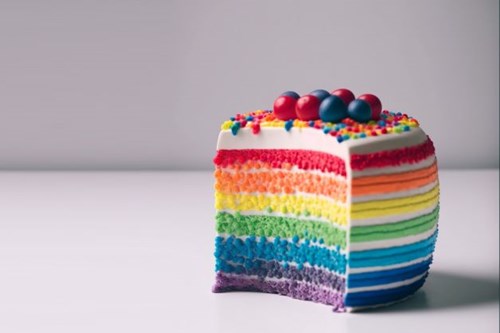Being an LGBTQ+ ally
Charlie Gibbons, Head of Sustainment and Support

It’s been more than 50 years since the start of the Pride movement in the UK. I see events like Pride and LGBT History Month as a time to celebrate the LGBTQ+ community and a time to reflect and acknowledge the progress made towards inclusivity and equality.
For me, this blog is aimed at touching on some of the real issues and barriers LGBTQ+ people face, whilst sharing my support as an LGBTQ+ straight ally who works for Wolverhampton Homes.
This month offers us all an opportunity to reflect and take the time to try and understand lives lived from a different perspective. As clichéd as this may sound – it’s my pledge to embrace diversity and inclusivity, whilst developing and delivering services that invite, include, and centre the voices of our workforce and customers.
Over the last year I’ve worked with colleagues on refreshing WH policies on domestic abuse. Part of that process involved me contacting customers who previously accessed support from WH’s Domestic Abuse team. I asked specific questions about barriers they had faced when seeking help.
One of the most poignant comments was that domestic abuse is framed as something that only affects women and straight couples. When I looked online, I found many national organisations aimed at supporting victims and survivors of abuse used heteronormative language on their website, which included gender specific images.
Equal rights for others do not mean less rights for you… it is not a pie
Unknown source
Over the past year, WH’s Domestic Abuse team responded to over 1000 incidents of domestic abuse. The team have seen a steady increase in disclosures made by victims from the LGBTQ+ community. Worldwide, it’s estimated 75% of abuse that affects LGBTQ+ people goes unreported to the police and other agencies.
What does this feel like for LGBTQ+ people? We know that an abuser will use tactics which include threatening to ‘out’ the victim to friends, family, religious communities and employers. We know that abusers seek out their victims, and people under the age of 25 are far more likely to be affected by domestic abuse in a same sex relationship.
Being an LGBTQ+ ally doesn’t necessarily mean you have to go to rallies, fly flags, and paint rainbows, although all those things are fabulous! We need to actively challenge our perceptions, our biases, the way we behave in the workplace, and really think about our services and how they are perceived by those on the receiving end.
